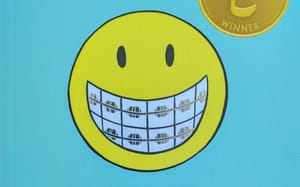I have just returned to the US from a couple of weeks vacation in Ireland and England. I was more than usually struck by my bookstore (aka book shop) experiences, and this prompted the curation entry I have just written.
First of all, an interesting note that I have quoted before about the management of supply and demand. Gavin Potter was a competitor in the competition to improve the Netflix recommendation algorithm. He was interviewed by Wired Magazine:
“The 20th century was about sorting out supply,” Potter says. “The 21st is going to be about sorting out demand.” The Internet makes everything available, but mere availability is meaningless if the products remain unknown to potential buyers. [This Psychologist Might Outsmart the Math Brains Competing for the Netflix Prize]
In the physical world, sorting out supply meant providing large aggregations of materials local to potential customers/users. For many, this function has shifted to the network where Amazon and others can provide large aggregations, improved by ranking, relating and recommending based on usage data. This suggests that a role for the physical retailer may shift from managing supply to managing demand or consumption, seeking to identify and meet particular needs. Here are some examples. I should note that my remarks are those of a consumer – I certainly don’t have an internal perspective of the book retail business!
- Herne Hill Books is the smallest book shop I have been in! Put several people in it and it is crowded. It is in a plot of cafes and other shops beside the busy Herne Hill train station in South East London. I did not see its bigger sibling, Clapham Books. Like other small independent shops, it has stuff covered in the reviews, some materials of local interest, some stuff reflecting the manager’s view of what might be of interest, and Scandinavian crime fiction. Here is an appreciative note about it which points to its art, photography, travel and cookery books. It caters for the gift buyer, the impulse buyer, and in this case it is well placed to cater for the traveller. And stocks some tasteful cards or other small items. Similar, if bigger, was the Rathgar Bookshop in Dublin, which had a range of gardening books in the mix. Such shops are likely to survive based on the strength of their curation, providing enough of distinctive interest alongside a selection of more general materials to draw in customers. (And in looking at them I am reminded of a comment from a while ago about the curation skills of public librarians, which I adapt slightly here: Books live in the lives of their readers. Readers also live in the lives of their books. And, in the libraries that he is talking about, I always thought that the mark of very good library staff was that they understood their collection based on the readers in the lives of its books, but also understood their readers based on the books in their lives.)
- We spent some time in Royal Festival Hall branch of Foyle’s. Larger than the shops above, it much smaller than the Charing Cross branch (which is distinctive in the breadth of its stock). However, we were struck by what appeared to be a selection very well suited to its location, and which had some interesting features, including a table of books published in the 1950s.
- I spent some time in the large Waterstone’s on Dawson St in Dublin. I was interested to see a greater emphasis than I have noticed before on staff selections and presentations. For example, in addition to straightforward staff picks, there were desert island reads and summer crime selections. The pattern was repeated throughout the store. And there is a large cafe. Across the street, Hodges Figgis is a large store, but is distinctive in that it has a large selection of materials of Irish interest. (Waterstone’s and Hodges Figgis are both owned by the HMV Group.)
I am very fond of our local Border’s. We spent a lot of time in it when we first moved to the States and our children were younger. It was comfortable and welcoming. In recent years its stock has got smaller, so, from a supply perspective, it more often than not will be lacking what I am looking for. We used to buy CDs there, but it no longer has a large collection, presumably because other people’s pattern of consumption – towards online – has changed in ways similar to our own. I used to buy English and Irish newspapers there, but it gets them late and, again, online reading has replaced some of this need. I sometimes wonder how it should develop to better ‘sort out demand’.
Related:
- On the discrimination of curations and curators …
- Recommendation and Ranganathan
- Aura again: habent sua fata libelli
- Libraries and the long tail (considers how the long tail argument is about better matching supply and demand through aggregation in a network environment)



